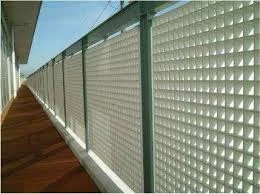
-
 Afrikaans
Afrikaans -
 Albanian
Albanian -
 Amharic
Amharic -
 Arabic
Arabic -
 Armenian
Armenian -
 Azerbaijani
Azerbaijani -
 Basque
Basque -
 Belarusian
Belarusian -
 Bengali
Bengali -
 Bosnian
Bosnian -
 Bulgarian
Bulgarian -
 Catalan
Catalan -
 Cebuano
Cebuano -
 China
China -
 China (Taiwan)
China (Taiwan) -
 Corsican
Corsican -
 Croatian
Croatian -
 Czech
Czech -
 Danish
Danish -
 Dutch
Dutch -
 English
English -
 Esperanto
Esperanto -
 Estonian
Estonian -
 Finnish
Finnish -
 French
French -
 Frisian
Frisian -
 Galician
Galician -
 Georgian
Georgian -
 German
German -
 Greek
Greek -
 Gujarati
Gujarati -
 Haitian Creole
Haitian Creole -
 hausa
hausa -
 hawaiian
hawaiian -
 Hebrew
Hebrew -
 Hindi
Hindi -
 Miao
Miao -
 Hungarian
Hungarian -
 Icelandic
Icelandic -
 igbo
igbo -
 Indonesian
Indonesian -
 irish
irish -
 Italian
Italian -
 Japanese
Japanese -
 Javanese
Javanese -
 Kannada
Kannada -
 kazakh
kazakh -
 Khmer
Khmer -
 Rwandese
Rwandese -
 Korean
Korean -
 Kurdish
Kurdish -
 Kyrgyz
Kyrgyz -
 Lao
Lao -
 Latin
Latin -
 Latvian
Latvian -
 Lithuanian
Lithuanian -
 Luxembourgish
Luxembourgish -
 Macedonian
Macedonian -
 Malgashi
Malgashi -
 Malay
Malay -
 Malayalam
Malayalam -
 Maltese
Maltese -
 Maori
Maori -
 Marathi
Marathi -
 Mongolian
Mongolian -
 Myanmar
Myanmar -
 Nepali
Nepali -
 Norwegian
Norwegian -
 Norwegian
Norwegian -
 Occitan
Occitan -
 Pashto
Pashto -
 Persian
Persian -
 Polish
Polish -
 Portuguese
Portuguese -
 Punjabi
Punjabi -
 Romanian
Romanian -
 Russian
Russian -
 Samoan
Samoan -
 Scottish Gaelic
Scottish Gaelic -
 Serbian
Serbian -
 Sesotho
Sesotho -
 Shona
Shona -
 Sindhi
Sindhi -
 Sinhala
Sinhala -
 Slovak
Slovak -
 Slovenian
Slovenian -
 Somali
Somali -
 Spanish
Spanish -
 Sundanese
Sundanese -
 Swahili
Swahili -
 Swedish
Swedish -
 Tagalog
Tagalog -
 Tajik
Tajik -
 Tamil
Tamil -
 Tatar
Tatar -
 Telugu
Telugu -
 Thai
Thai -
 Turkish
Turkish -
 Turkmen
Turkmen -
 Ukrainian
Ukrainian -
 Urdu
Urdu -
 Uighur
Uighur -
 Uzbek
Uzbek -
 Vietnamese
Vietnamese -
 Welsh
Welsh -
 Bantu
Bantu -
 Yiddish
Yiddish -
 Yoruba
Yoruba -
 Zulu
Zulu
fiberglass storage tanks
The Advantages of Fiberglass Storage Tanks
In the realm of industrial and agricultural storage solutions, fiberglass storage tanks have emerged as a preferred option for many organizations. With unique properties and a range of benefits, these tanks are increasingly being used for various liquid storage needs, including chemicals, water, and wastewater. This article will delve into the advantages of fiberglass storage tanks and why they have become a vital component in many industries.
Durability and Corrosion Resistance
One of the primary advantages of fiberglass storage tanks is their remarkable durability. Unlike traditional metal tanks, fiberglass tanks are highly resistant to corrosion and rust. This is particularly significant in industries that handle aggressive chemicals or liquids with high acidity, where corrosion can compromise the integrity of the tank. The resilience of fiberglass not only extends the lifespan of the tank but also minimizes the need for frequent replacements and repairs, leading to substantial cost savings for businesses.
Lightweight and Easy to Install
Fiberglass is much lighter than materials like steel or concrete, making it easier to transport and install. The lightweight nature of fiberglass tanks reduces installation costs, as they can often be moved and set up without the need for heavy machinery. This portability allows for flexible use in various locations, adapting to changes in operations or needs without the burden of significant structural shifts.
Cost-Effectiveness
While the initial cost of fiberglass storage tanks may be higher compared to some other materials, the long-term savings make them an attractive choice. Their resistance to corrosion translates to lower maintenance costs and extended service life. Additionally, the energy efficiency of fiberglass tanks during temperature fluctuations helps minimize operational costs associated with heating or cooling the stored liquids, particularly in climates with extreme temperatures.
fiberglass storage tanks

Customizability
Fiberglass storage tanks can be custom-manufactured to meet specific requirements, including size, shape, and storage capacity. This flexibility allows businesses to tailor storage solutions to their unique needs, whether it’s for agricultural fertilizers, potable water, or industrial chemicals. Manufacturers can also incorporate specific fittings, such as manways and access hatches, ensuring that the tank meets operational demands effectively.
Environmental Impact
As sustainability becomes an increasingly important consideration for businesses, fiberglass storage tanks present an eco-friendly choice. The materials used in their production are often recyclable, contributing to a reduced environmental footprint. Moreover, their resistance to leaks and spills minimizes the risk of soil and water contamination, safeguarding both the environment and public health.
Safety Features
The safety of storage tanks is paramount, especially when dealing with hazardous materials. Fiberglass tanks are typically designed with safety features that protect against spills and leaks. Their non-toxic nature ensures that there is no leaching of harmful substances into the stored liquids, making them safe for storing drinking water and other sensitive materials.
Conclusion
Fiberglass storage tanks have proven to be a superior choice for various storage applications in numerous industries. Their durability, lightweight nature, cost-effectiveness, customizability, lower environmental impact, and enhanced safety features make them an ideal solution for businesses looking to optimize their storage capabilities. As technology advances and industries evolve, the role of fiberglass tanks in ensuring efficient, safe, and environmentally friendly storage solutions will undoubtedly continue to grow, solidifying their position in the market.









